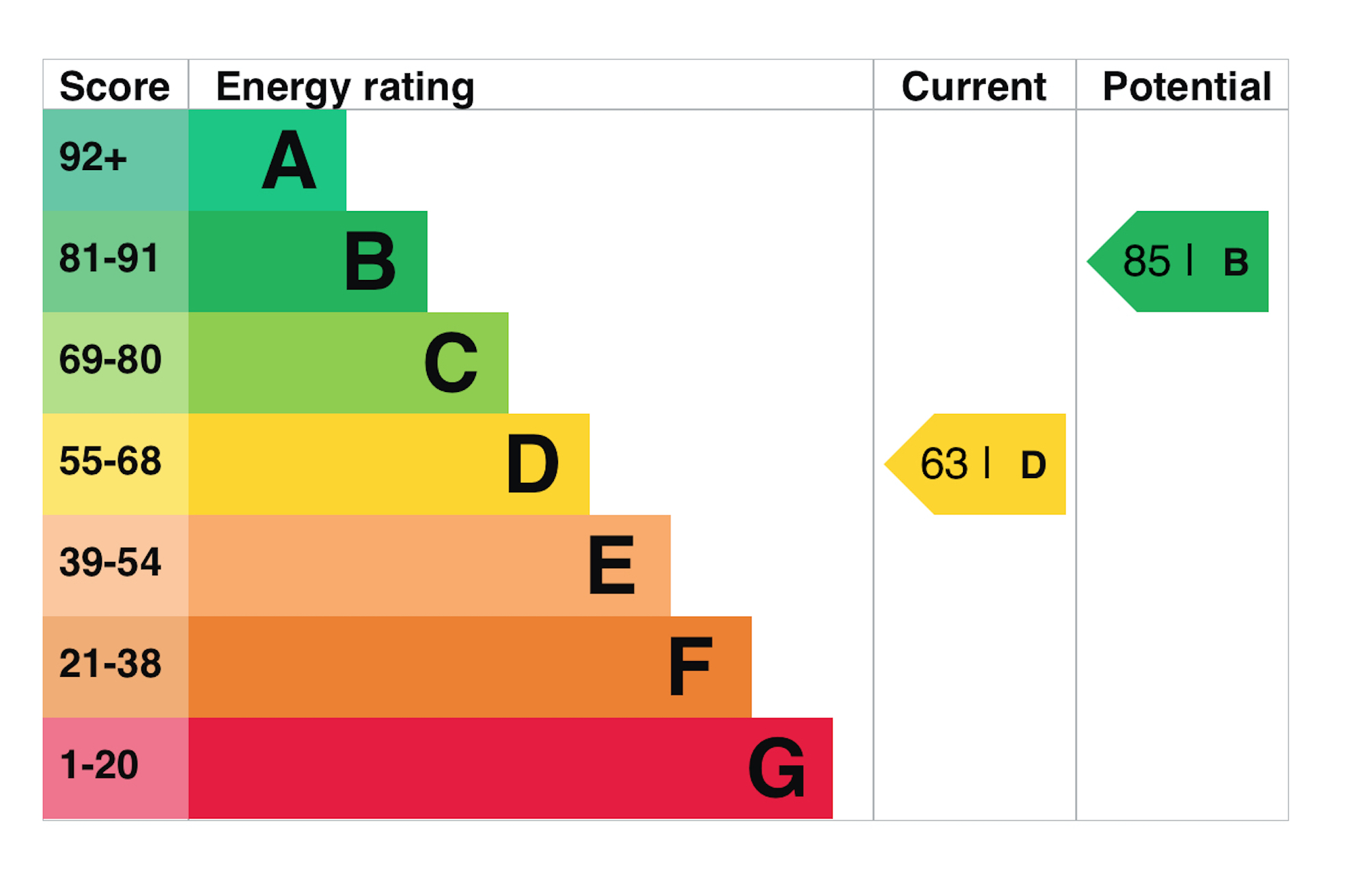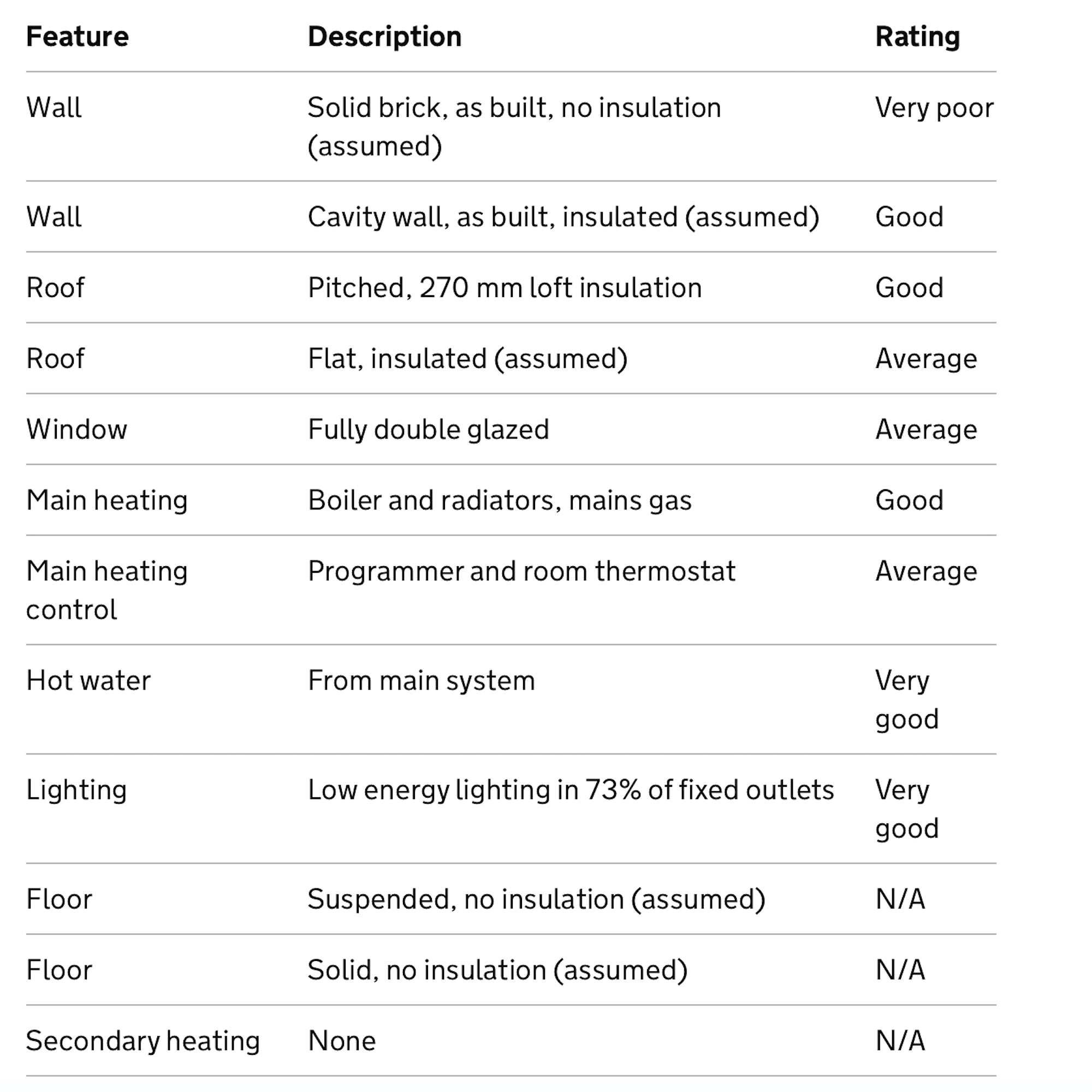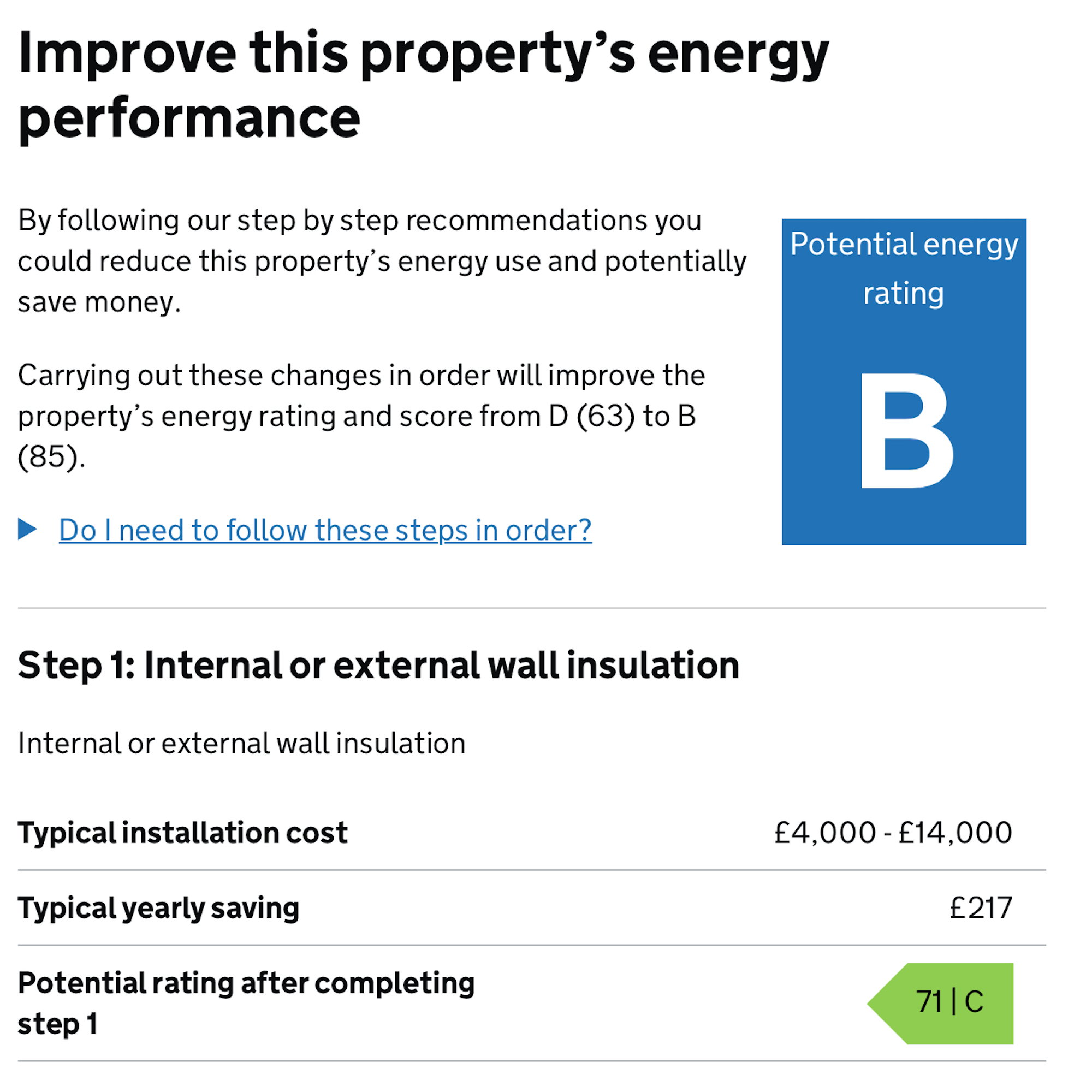EPC ratings explained – what is an Energy Performance Certificate? The jargon-free guide
Would you like to know how energy efficient your property is? You certainly need to if you're buying, selling (or renting a house out)

Emma Lunn
If you’re selling your home, you’ll need an Energy Performance Certificate (EPC) to market your property. If you’re buying a new pad, an EPC will tell you how energy efficient it is.
As well as being good for the planet, an energy efficient home can mean cheaper energy bills. The energy price cap might be coming down but energy bills are still a major drain on household budgets in the cost of living crisis.
The recommendations in an EPC can help you to save energy at home and make your property cheaper to run. Homes that have higher EPC ratings generally have higher asking prices and are more attractive to potential buyers. So if you want to know how to sell your house quickly and for a higher price, understanding EPC ratings is a worthwhile use of your time.
'An energy performance certificate is a document that shows how energy-efficient your property is,' explains Thomas Goodman, property expert at MyJobQuote.co.uk. 'It includes a summary of your home’s energy performance-related features and the estimated energy costs of your property.'
'It will also include recommendations on things that may make your property more energy-efficient, with some estimated costs of these changes and the potential savings that you could get with these changes.'

What is an Energy Performance Certificate?
An EPC is a standardised document prepared by an energy assessor that measures the energy efficiency of a building. Alongside an overall rating, it will show the household’s estimated energy costs for lighting, heating, and hot water for the next three years.
As well as detailing the property’s current rating, the EPC will provide a potential score which could be achieved if the recommendations for improved energy efficiency are installed.
There are two types of EPCs: domestic and commercial. If you are buying or renting a residential property, you will require a domestic EPC. Commercial properties may also require an EPC, depending on their size and what they are used for. Valid for 10 years from the date of issue, an EPC is a legal requirement whenever a property is built, sold or rented. It is the seller or landlord’s responsibility to organise an EPC.
EPCs were first introduced in 2007 and became a legal requirement in England, Wales, and Northern Ireland in 2008, and in Scotland from 2009. The aim was to encourage homeowners and landlords to adopt energy-saving measures. They have helped people to become more aware of the benefits of energy efficiency and improved transparency about the running costs of properties.
What happens if you don't have a valid EPC?
If you are selling or are a landlord and you do not have an EPC, you could be fined up to £5,000. Under new government proposals, this would be increased to £30,000 from 2025.
What is a good EPC rating?
All properties are placed on a colour-coded scale from A to G, with A being the most efficient with the cheapest fuel bills.
A property's EPC rating will be dependent on:
- The amount of energy used per metre squared
- The level of carbon dioxide emissions (in tonnes per year)
The EPC provides a numerical grade, between 1 and 100 (occasionally 120 depending on renewable energy measures) and a lettered grade from A to G, with A being the highest.
- A: 92 points plus
- B: 81-91 points
- C: 69-80 points
- D: 55-68 points
- E: 39-54 points
- F: 21-38 points
- G: 1- 20 points
'The assessor will need to look at your entire property,' explains property expert Thomas. 'They will look at a range of metrics to find out the energy efficiency of your home. These are then put together to create your final EPC.'
'On the day, your EPC test will usually take around 30 to 40 minutes on average. If you have a particularly large home, it may take longer but can usually be completed within an hour. It usually takes a few days to get your EPC results back. In most cases, you should have your results within a week.'
New builds tend to have higher EPC ratings, while older homes have EPC ratings of around D or E. According to the Office for National Statistics, England and Wales both have a median energy efficiency rating in band D, with scores of 67 and 65 respectively.
What does an Energy Performance Certificate show?
An EPC is broken down into different sections and shows current and potential energy costs of a property, how energy efficient it is and how well certain elements of the home, like the walls and roof perform in terms of energy efficiency, as well as recommendations as to how these results can be improved.
It is important to note that not all EPCs will look the same. Certificates created before 2017 will look slightly different to the more current version, which will be explained here.
The first part of your certificate will show:
- The date of validity
- A certificate number
- A description of the property
- Total internal floor area, based on measurements taken by the assessor at the time of their visit
The EPC will then be broken down into the following main sections:
1. Current and potential energy costs
The first section of an EPC looks at the house’s current estimated costs for energy divided into lighting, heating and hot water. It is incredibly useful for prospective buyers to know how much a property’s utility bills might be and how much they could save by introducing some energy saving measures.
It is worth noting that this is an estimate of costs and not based on energy used by individual households. It excludes energy used for running appliances, such as computers, cookers, fridges and TVs, so your bills will likely be higher.
The estimates shown are useful if you are comparing properties, so you can see which one will be cheaper to run.
2. Energy efficiency rating
The next table will show which EPC rating your property has and looks similar to the energy labels you'll find on home appliances, like washing machines and tumble dryers.
The rating is from A to G, with A being the most efficient and cheapest to run. It also shows the potential rating if you were to make the suggested improvements.

Some EPCs will have a similar table, showing the property’s environmental performance. This will show how the building performs in terms of carbon dioxide emissions.
Again, the best rating is A and the worst is G. It will again show the potential which could be achieved if changes were implemented.
3. Property Performance
The next part of your certificate will give you a breakdown of each element of your property, including your walls, roof, floor, windows, main heating, main heating controls, secondary heating, hot water, and lighting.
Each of these will be given a description and a rating. This is sometimes expressed between one to five stars, with five being the best. Or it will be given a rating from Very Poor to Very Good.The next part of your certificate will give you a breakdown of each element of your property, including your walls, roof, floor, windows, main heating, main heating controls, secondary heating, hot water, and lighting.
After each of these will be a description and a rating. This is sometimes given from one to five stars, with five being the best. Or it will be given from Very Poor to Very Good.

This part of the EPC can help you understand how effective the construction of the property is, as well as the heating and hot water system, and lighting.
4. Recommendations to improve efficiency
An EPC also lists a breakdown of recommended measures, including the related costs and typical savings that you could make by implementing them. It will show how each measure could improve the energy efficiency of the property and how this could improve the rating.
The recommended measures are shown in order of importance and the improvement figures are based on making changes in this order. The number of recommendations will vary from property to property.
The report will then list alternative measures that could be considered to improve the property's energy efficiency. This could include information about renewable alternatives, such as heat pumps and biomass.

The final section of the EPC includes basic information, such as the date of the assessment, the assessor and their accrediting body.

When do I need an Energy Performance Certificate?
If you are selling your home or letting a property, you will need a valid EPC. On April 1 2018, the Minimum Energy Efficiency Standards (MEES) came into force. This required all properties being let or sold in England and Wales to have a minimum EPC rating of E and above.
If you are a landlord, then it's also important to know that the government has announced changes to MEES standards and has proposed that all rental properties will need an EPC rating of C and above by 2025. The new regulations will first apply to new tenancies, followed by all tenancies from 2028. This hopes to make homes more energy-efficient and forms part of the government’s target to be net-zero by 2050.
When don't I need an EPC?
There are a few scenarios in which your property will not need an EPC. These include if the property is listed, in a Conservation Area, or protected because some energy efficiency improvements may unacceptably alter the appearance of the property.
How do I get an EPC rating?
In England, Wales, and Northern Ireland, an accredited energy assessor must complete your EPC. You can find accredited accessors in your area via the government’s official EPC Register. In Scotland, EPCs must be completed by government-approved organisations.
An accredited domestic energy assessor will attend your property to complete the assessment. They will need to access all rooms including the loft, and also inspect the heating systems and controls. They will take key measurements and photographs of all the key data.
How much does an EPC cost?
'An EPC costs around £60 to £120,' said property expert Thomas. 'There is no set price, so it’s worth shopping around with energy assessors so that you can get the best price for your property. The size of your home can affect the overall cost. If you live in an expensive city such as London, this can also affect the cost of your EPC.'

How long does an EPC certificate last?
Once completed, an EPC is valid for 10 years. You can use it multiple times within this period. If you have made improvements to your property and plan to rent it out or sell it, it is a good idea to have a new EPC done to reflect the changes.
How do I check my home’s EPC rating?
You can check the rating of your own and other properties on the EPC Register. Just type in your postcode to find the correct address. If your property has a valid EPC, you can download it as a PDF and save it for free.
All EPCs in England, Wales, and Northern Ireland are logged on the EPC Register. For properties in Scotland, they can be found on the Scottish EPC Register.
These registers are publicly available. They are useful for finding your EPC certificate or when you are comparing prospective homes and the potential costs involved in running them.
The government may use some of this data for research and statistical purposes. You can opt out of the EPC Register by contacting the Department for Levelling Up, Housing & Communities.
If there is anything in your report that you want to query, you can contact the energy assessor who completed the report. You should be able to access their details in the report.

What can I do to improve my EPC rating?
An EPC will list recommendations on how you can improve your rating. It will give estimated costs to make improvements, as well as the total potential savings.
Common recommendations include:
- Install double glazing
- Insulate your floor, roof, loft, or walls
- Install solar panels
- Replace an old boiler
- Invest in low-energy lighting
- Use renewable energy such as a heat pump
- Install a smart meter
These improvements will lower energy bills and lessen the property's environmental impact.
Why is a high EPC rating important?
A more energy efficient home, with a high EPC rating, will be cheaper to heat and run. This will mean you benefit from lower energy bills. A higher EPC also means your home is better for the environment than a home with a lower EPC rating.
If you’re selling your home, an EPC can help buyers choose between properties, as it gives an indication of how much they could pay in energy bills. A good EPC rating will reassure buyers that they won’t need to make extensive updates to a property once they’ve moved in.
Several studies have also shown a correlation between a stronger EPC rating and a higher house price.
Can an EPC affect your mortgage?
'While an EPC rating doesn’t directly impact your ability to secure a mortgage it can indirectly influence your borrowing costs, because lenders are now increasingly factoring energy efficiency into their lending decisions,' says Pete Mugleston, managing director at onlinemortgageadvisor.co.uk.
'A high EPC rating may lead to more favourable terms and lower interest rates, as it signifies lower ongoing costs for the homeowner. If you’re preparing to buy a property or secure a new deal for your current home, the EPC rating is an important factor to be considered.'
Can an EPC affect my house price?
For homeowners looking to sell, a high EPC rating can make their property more attractive to eco-conscious buyers as well as those looking to keep their utility bills lower.
'Having a high EPC rating doesn’t directly increase the value of your property, but it can give you the edge over other homes and therefore secure a higher sale price,' explains mortgage expert Pete. 'What’s more, it could open the door to more prospective buyers who are specifically searching for an energy-efficient home, which could again drive up demand and lead to a better selling price.'
Elaine Penhaul, director of home staging firm Lemon and Lime Interiors, agrees with this. 'The extent to which a good EPC rating affects the selling price of your home can vary depending on the local market conditions, the overall type, condition and location of your property, and the preferences of potential buyers,' she says.
'However, an energy-efficient home is likely to be another factor in the overall consideration of a buyer. This may lead to the home selling more quickly if it is being compared to a less energy-efficient property,' concludes Elaine.
Sign up to our newsletter for style and decor inspiration, house makeovers, project advice and more.
Georgina is an experienced copywriter, editor, and NCTJ-accredited journalist with almost 20 years' writing experience. She currently works across multiple sectors, including energy, health, lifestyle, entertainment, tech, and education. Recently, she compiled articles for an energy trade magazine about renewables and offshore wind farms and she has a number of boiler clients through her copywriting work.